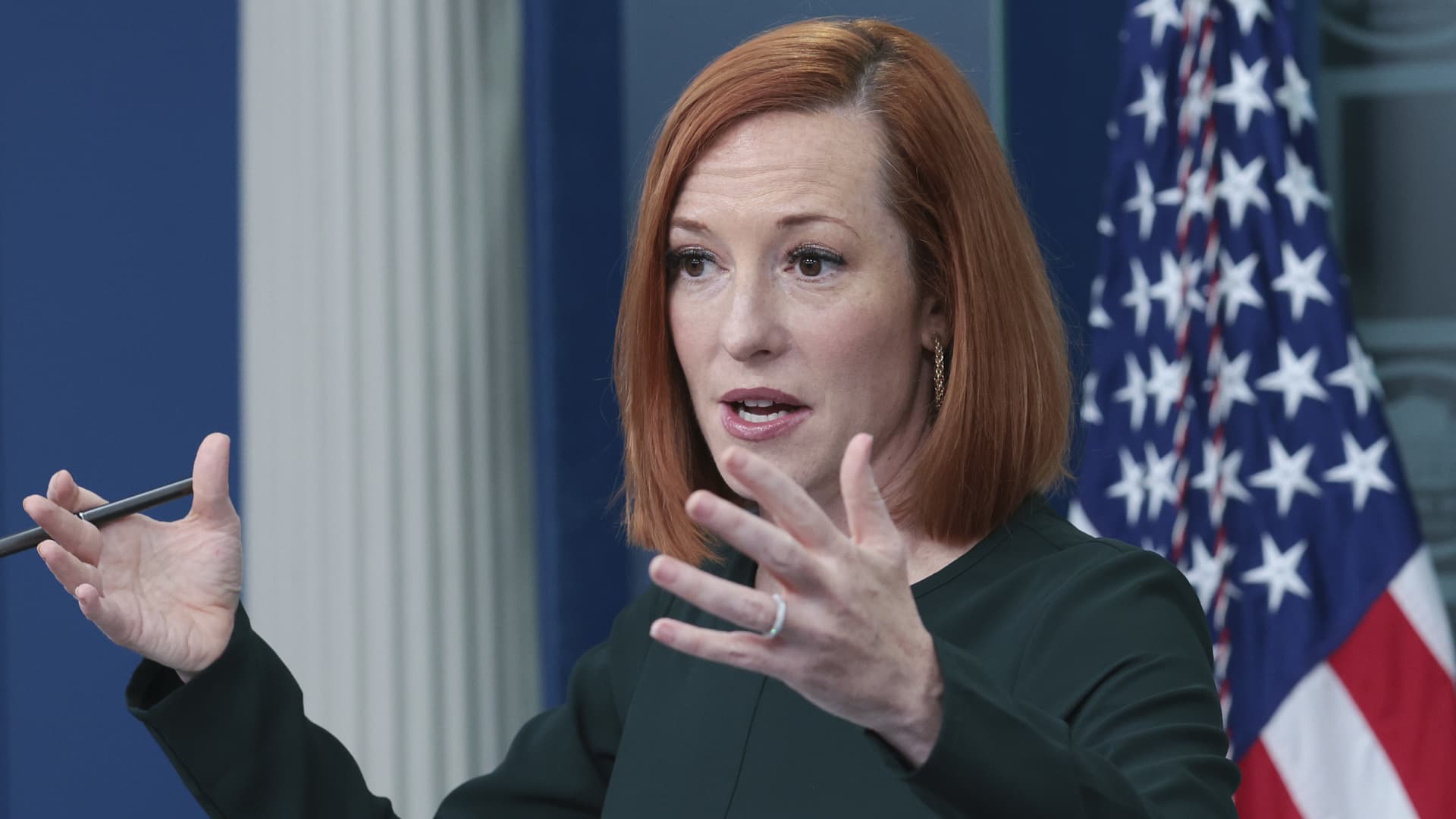White House says it expects inflation to be 'extraordinarily elevated' in new report
The Biden administration is bracing for the Labor Department's consumer price index report to show that inflation is "extraordinarily elevated."

White House press secretary Jen Psaki answers questions during the daily briefing on March 09, 2022 in Washington, DC. Psaki answered a range of questions related primarily to Russia's invasion of Ukraine.
Win Mcnamee | Getty Images
WASHINGTON — The Biden administration is bracing for Tuesday's key consumer inflation report to show that the prices Americans pay soared in March, as Russia's assault on Ukraine caused energy prices to jump.
White House press secretary Jen Psaki said Monday that the Labor Department's previous report — which showed prices rising at a dramatic rate in February — failed to include the majority of the jump in oil and gas costs caused by the Kremlin's unprovoked invasion.
"We expect March CPI headline inflation to be extraordinarily elevated due to Putin's price hike," Psaki told reporters.
"We expect a large difference between core and headline inflation," she continued, "reflecting the global disruptions in energy and food markets."
The Bureau of Labor Statistics on Tuesday will issue its March update to the consumer price index, or CPI. The CPI is the department's tool for measuring inflation in a basket of goods and services that the average American would buy — ranging from eggs and milk to cellphones and unleaded gasoline.
Economists consider two versions of the CPI data: The headline number that includes all prices consumers face, and a so-called core CPI that excludes often volatile food and energy price fluctuations.
The White House says it anticipates a wider-than-normal disparity between the headline and core readings because of an abnormal increase in gas prices that occurred last month. The price for a gallon of regular unleaded gasoline hit a record high of $4.33 on March 11, according to the American Automobile Association.
That price has since slid to $4.11 a gallon, according to AAA.
"At times, gas prices were more than one dollar above pre-invasion levels, so that roughly 25% increase in gas prices will drive tomorrow's inflation reading," Psaki said.
Labor Department data has for several months shown that year-over-year price jumps have been hitting levels not seen since Ronald Reagan was in the Oval Office. The February reading showed benchmark consumer inflation index rose 7.9% over the last 12 months, the highest level since January 1982.
The March report is due out on Tuesday at 8:30 a.m. ET.
The press secretary noted that President Joe Biden has taken several steps to help lower energy costs, including a move to release about 1 million barrels of oil a day from the nation's Strategic Petroleum Reserve.
On the final day of March, Biden blamed Russian President Vladimir Putin for the most recent spike in energy costs.
"Many people are no longer buying Russian oil around the world. I banned Russian-imported oil here in America, Republicans and Democrats in Congress called for it and support it. It was the right thing to do," Biden said on March 31.
"But as I said at the time, it's going to come with a cost," the president added. "As Russian oil comes off the global market, supply of oil drops and prices are rising. Now Putin's price hike is hitting Americans at the pump."
Stalled legislation — key components of the president's Build Back Better agenda — backed by the White House and congressional Democrats could also help cut child-care and health-care costs, Psaki added.

 FrankLin
FrankLin 
































